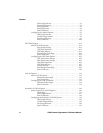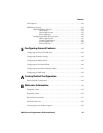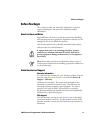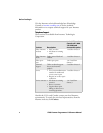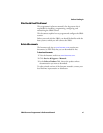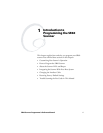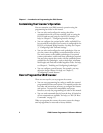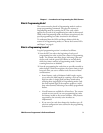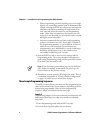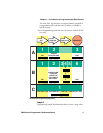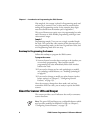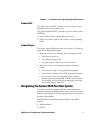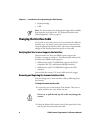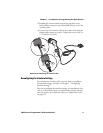Chapter 1 — Introduction to Programming the SR60 Scanner
2 SR60 Scanner Programmer’s Reference Manual
Customizing Your Scanner’s Operation
You can customize your SR60 scanner’s operation using the
programming bar codes in this manual.
• You can select and configure the settings that allow
communication with your host terminal, such as setting the
RS-232 baud rate and parity for the RS-232 interface. For
help, see Chapter 2, “Configuring Interface Settings.”
• You can configure the optional prefix, suffix, and label ID to
be sent with bar code data if your scanner is configured for the
RS-232 or Keyboard Wedge interface. For help, see Chapter
3, “Configuring Label Transmit Settings.”
• You can select and configure bar code symbologies. You can
give the scanner the capability to autodiscriminate as few as
one, and as many as all available symbologies. For optimal
scanner performance, enable only those symbologies required.
You may also program the scanner with the standard options
available for the symbologies, such as check digit, minimum
label length, and fixed and variable length bar codes. For help,
see Chapter 4, “Enabling and Configuring Symbologies.”
• You can configure general features. For example, you may
adjust the beeper volume. For help, see Chapter 5,
“Configuring General Features.”
How to Program the SR60 Scanner
There are two ways for you to program the scanner:
• You can scan programming bar codes to modify the scanner’s
programmable features and options. This manual provides the
bar codes and instructions necessary to configure the features
and options. To ensure full compatibility and proper
function, use only the programming bar codes in this manual.
• You can send commands directly from the host. A limited set
of host commands are available. For help, see “RS-232 Host
Commands” on page 157.
When you program the scanner, the scanner stores the changes
until reprogrammed or returned to factory defaults.



